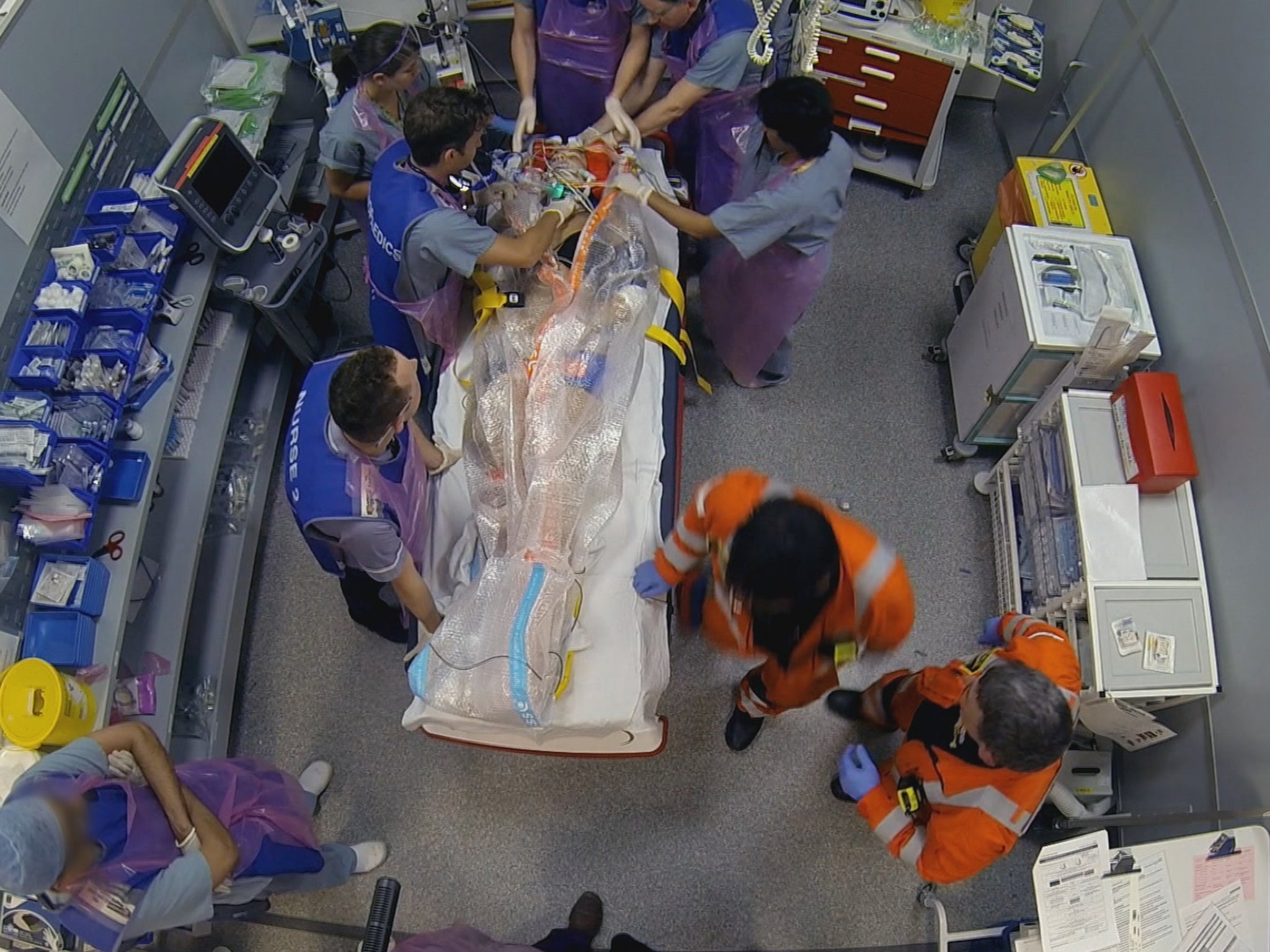24 Hours in A&E, TV review: From a sewing needle to car crashes – all human trauma is here

Your support helps us to tell the story
From reproductive rights to climate change to Big Tech, The Independent is on the ground when the story is developing. Whether it's investigating the financials of Elon Musk's pro-Trump PAC or producing our latest documentary, 'The A Word', which shines a light on the American women fighting for reproductive rights, we know how important it is to parse out the facts from the messaging.
At such a critical moment in US history, we need reporters on the ground. Your donation allows us to keep sending journalists to speak to both sides of the story.
The Independent is trusted by Americans across the entire political spectrum. And unlike many other quality news outlets, we choose not to lock Americans out of our reporting and analysis with paywalls. We believe quality journalism should be available to everyone, paid for by those who can afford it.
Your support makes all the difference.Six series of the Channel 4 documentary 24 Hours in A&E have taken place at King's College hospital but for the seventh series, which began last night, the camera crew moved a few miles south to a brand new London location, St George's in Tooting. There, they've recently opened the capital's second hospital helipad, and that's not all: the A&E also boasts the expertise of hunky trauma doctor Mo. If he can't get your heart started again, viewers, nothing will.
Dr Mo's mum would like him to meet a nice girl and had this been an episode of Holby City, she'd surely have got her wish by now. This was 24 Hours in A&E, however, and patient Tina was in no mood for romance after stepping on a sewing needle. She eyed all NHS staff with suspicion, convinced they were planning a secret amputation, and preferred her mother's medical advice to that of the professionals. "Everything is relative," explained Dr Mo to the camera, "A very small injury to certain individuals could have a massive impact"
This programme represents only a short period in the life of every patient, but the best episodes manage to turn that moment into a window on their entire life. We learnt, for instance, that 29-year-old dental nurse Kerry was an independent spirit, an excellent driver and a beloved granddaughter as well as the victim of a horrific motorcycle crash that brought her to A&E.
In a later interview, her grandfather described arriving at the scene of the accident to see two men running up the road: "I said, 'Excuse me, what are you looking for?' and he said, 'We're looking for the young girl's leg.'"
For some, like 11-year old Luke and his parents, a trip to the emergency room is more routine, but no less upsetting. Luke's epilepsy can cause several seizures a week and has resulted in his severe learning difficulties. "We went through such a horrific time when he was little, but you come out the other end," said his mother Catherine. "You realise, 'OK, this is different than what I was expecting, but actually not awful, it's actually very valuable and very positive.'"
These 24 hours aren't the beginning of a patient's story and – with a bit of luck and some world-class medical care – it isn't the end either. It was a particular relief, for instance, to catch up with Kerry in the episode's post-script, now recovered and competing in a 10K race, with the aid of her wheelchair and, more importantly, her grandparents.
Join our commenting forum
Join thought-provoking conversations, follow other Independent readers and see their replies
Comments